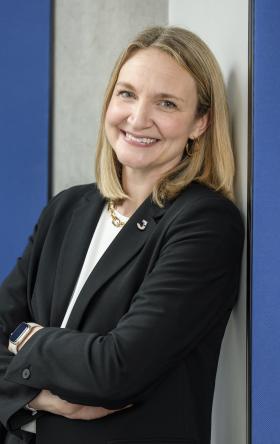
Resilience saturates all aspects of our lives. As the frequency and severity of weather events intensifies, and populations grow, the effects on governments, cities, businesses, and communities increase. To help our clients protect their most valued assets—people, infrastructure and the environment—and safeguard continuity of service in the face of man-made and natural hazards, Jacobs’ technology leaders keep on the cutting edge of risk and resiliency research and implementation.
In January 2019, Jacobs Florida Resilience Practice Leader and U.S. South Water Resources Solutions Lead Jason Bird was appointed the new Chair of the U.N. ARISE U.S. Network. This series of global networks is supported by the United Nations Office for Disaster Risk Reduction (UNISDR) and seeks to fulfill the objectives of the U.N. Sendai Framework.
Adopted in 2015 by the United Nations and followed by the establishment of UNISDR, the objective of the network is coordinating disaster reduction activities and encouraging synergies both within the U.N. and with regional organizations in similar fields.
UNISDR supports the global ARISE network – 140 companies in more than 150 countries – designed to create greater understanding of disaster risk in the business community, safeguard future investments and reduce economic losses from disasters.
In his role with the U.S. ARISE network, established in 2017, Jason is looking forward to leading efforts to facilitate public/private sector coordination to promote risk reduction and resiliency and, ultimately, reduce damage to U.S. infrastructure.
“I think resiliency is in the same place sustainability was 10-15 years ago” says Bird. “At the time it was in its infancy, and no one was quite sure what it was or how to apply it. Over time, it has become ingrained in everything we do, and now we understand the essential role it has in our daily lives,” he says. “With climate change approaching more quickly than ever, it is critical that we use our risk and resiliency experience to create a strong framework to evaluate, plan, adapt and mitigate to the growing threat so that we can sustain our infrastructure and communities today and into the future.”
Jason brings almost two decades of civil engineering experience to this leadership role, with a focus during the past decade on sustainable infrastructure and water resources, including water balance modeling, decision support analysis and infrastructure resiliency evaluations. His experience and knowledge developing resilient masterplans, hardening vulnerable infrastructure, and preparing adaptation strategies for coastal Florida communities and utilities, along with evaluations of critical infrastructure at U.S. Army, Marine and Navy bases around the globe, has provided diverse global experience to advance adaptation and mitigation to climate threats across Jacobs’ client portfolio.
Risk reduction and resiliency requires integrated solutions that address complex issues like social values, competing resource demands, climate change, extreme events, environmental improvements, aging infrastructure and funding. It benefits from strong networks of people from diverse backgrounds that are passionate about making a difference in the face of climate change. Working with his board and member partners, Jason will lead the ARISE U.S. Network strategy, promote the benefits of membership, create a strong website presence to facilitate partnerships and enhance the network.














































